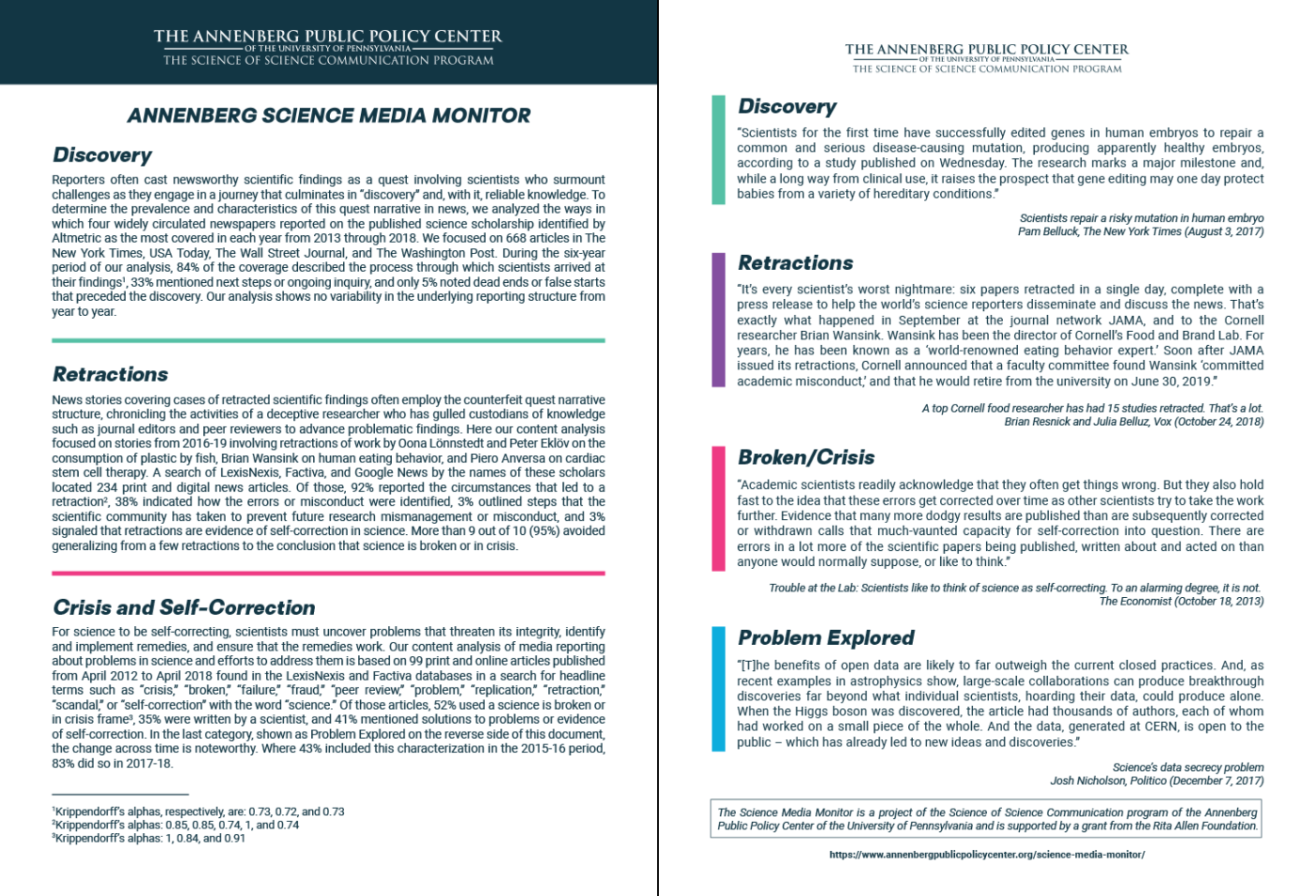In an effort to increase public understanding of the scientific process, the Annenberg Science Media Monitor has published a set of reports seeking to improve science reporting in the news media.
The monitor does this by analyzing the news coverage of widely reported scientific findings and disseminating the results to science journalists, as well as the science community. Because the media play such a vital role in shaping public perceptions of science, there is value in understanding how the media cover scientific discovery, retracted findings, and the well-being of science, and describe solutions to problems in science or evidence of self-correction.
In a brief digest, the Science Media Monitor summarized some of these findings from 2018-19. Among them, were findings about:
- Discovery: Over a six-year analysis of the “discovery” narrative in the press, 84% of the coverage described how scientists arrived at their findings, though only 5% noted the dead ends or false starts that preceded the discovery.
- Retractions: A content analysis of news coverage of three scientific retractions found that 92% of the stories reported the circumstances that led to the retraction, though few stories signaled that retractions are evidence of self-correction in science.
- Crisis and Self-Correction: An analysis of articles from April 2012 to April 2018 of stories whose headlines mention “science” along with such words as “crisis,” “broken,” “failure,” “fraud,” “peer review,” “problem,” “replication,” “retraction,” “scanda,” or “self-correction” finds that more than half of them use a “science is broken/in crisis” frame and more than a third were written by a scientist.
For additional details, download the digest.
This digest was first distributed in October 2019 at ScienceWriters 2019, a joint meeting of the National Association of Science Writers and the Council for the Advancement of Science Writing.
The digest is based on past reports of the Annenberg Science Media Monitor, which include:
- How Well Do Major Media Outlets Cover The Process Of Scientific Discovery?
- Media Framing of News Stories About the Ethics, Benefits, and Risks of CRISPR
- How the Media Frame News Stories About Retractions of Scientific Findings
- Crisis and Self-Correction in Science
The reports are available at www.annenbergpublicpolicycenter.org/science-media-monitor/
The Science Media Monitor is supported by a grant from the Rita Allen Foundation.


